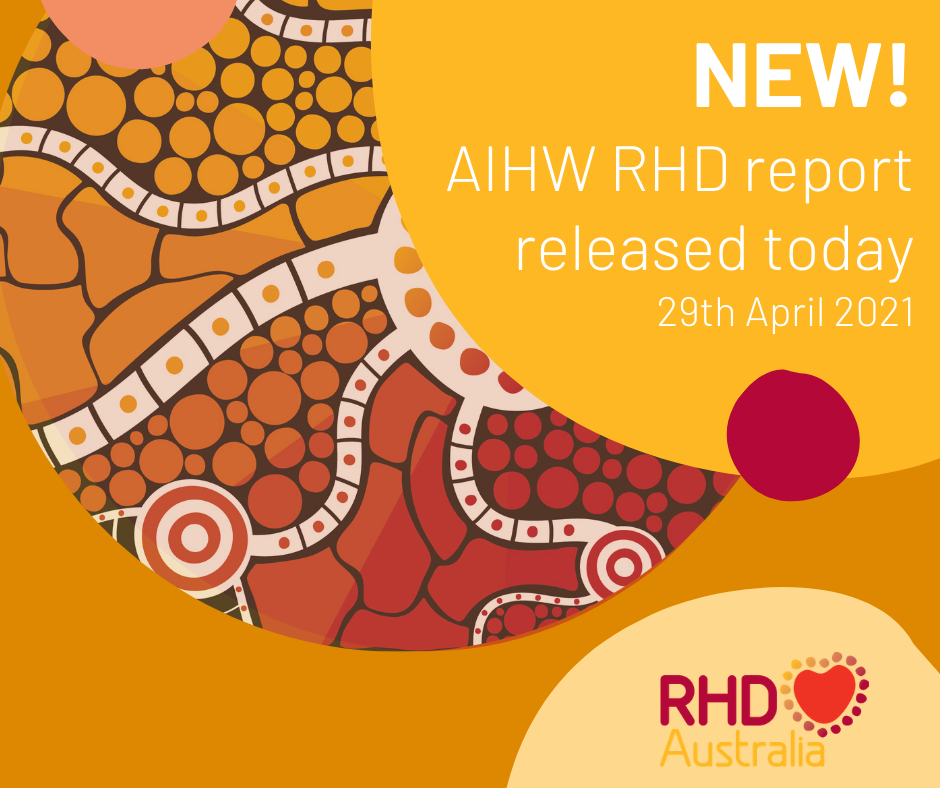News release
From:
The number of people with rheumatic heart disease in Australia continues to grow
A report released today by the Australian Institute of Health and Welfare has shown that the burden of acute rheumatic fever (ARF) and rheumatic heart disease (RHD) continues to grow in Australia.
RHD is rare in most high-income countries yet in Australia it persists in Aboriginal and Torres Strait Islander peoples, causing grief and heartache for many families and communities.
RHD is a consequence of ARF, stemming from an abnormal immune reaction to untreated Group A streptococcal (Strep A) infection in the throat or on the skin. The report shows that the rate of definite or probable ARF notifications from health services increased from 67/100,000 in 2015 to 81/100,000 in 2019.
The data for the report, drawn from Queensland, Western Australia, South Australia, Northern Territory and New South Wales from 2015 to 2019, also highlights that Aboriginal and Torres Strait Islander people accounted for 81 per cent, or 4,337, of all RHD diagnoses during that same time.
Behind these numbers is the emotional toll and suffering caused by ARF and RHD on people, families, communities and culture which is often not reported.
Vicki Wade, who began the Champions4Change program in RHDAustralia – a culturally responsive support program for people living with ARF and RHD - understands that the key to changing the trajectory of ARF and RHD in Australia is to put people at the centre of care and ensure Aboriginal and Torres Strait Islander peoples have agency to drive change.
“It’s important to remember that there’s a human face behind the numbers. Each number represents a defining moment in time for people, marked by sadness, grief and uncertainty. These are our Mothers, Fathers, Aunties, Uncles, brothers, sisters and cousins all gone from a disease that should have been eradicated years ago.
“While the numbers show the burden of disease continuing to increase, I’m optimistic that there’s a growing movement of community-led solutions centred around people and culture that is beginning to shift the tides of inequity. RHDAustralia was a key partner to The RHD Endgame Strategy, a strategy developed over five years by a coalition including many leaders in the area that was launched by Minister Hunt late last year. It provides a blueprint for decision makers in communities and government to end RHD in Australia by 2031.
“Programs such as the Champions4Change program help support people and communities to develop existing skills and capacities of Aboriginal and Torres Strait islander people, which empowers people to lead healthier and happier lives,” said Ms Wade.
Ms Wade, who was a co-author for the 2020 Australian guideline for prevention, diagnosis and management of acute rheumatic fever and rheumatic heart disease (3rd edition), also understands that decreasing the burden of ARF and RHD in Australia requires a co-operative approach where health systems, and the people that work in them, respond with culturally appropriate care.
“We need to do more from a clinical perspective as well. The 2020 guidelines were the first time in Australia that medical guidelines put culture at the centre of care.
“By refocusing on people with this disease, the guideline acknowledges Aboriginal and Torres Strait Islander peoples’ unique culture, and the social, economic and environmental circumstances in which they live,” said Ms Wade.



 Australia; NT
Australia; NT


